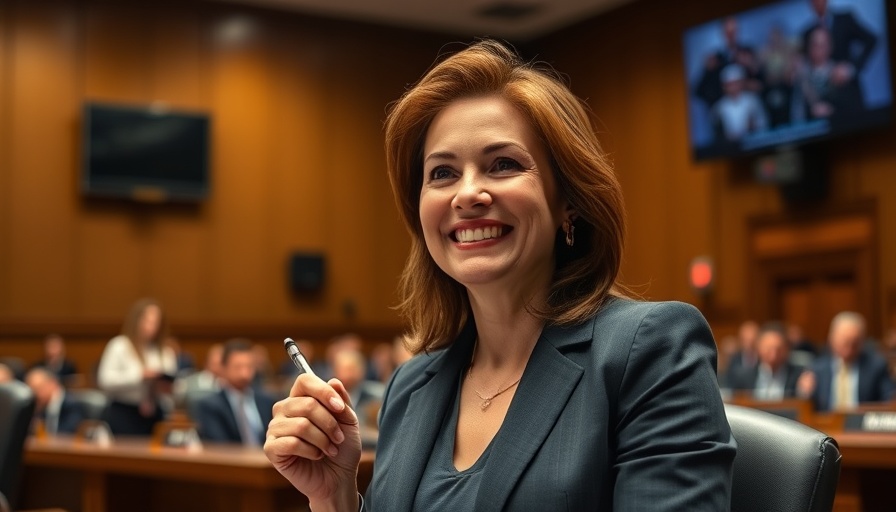
Susan Monarez Out After Turbulent Tenure: What Happened?
The Centers for Disease Control and Prevention (CDC) has seen another abrupt leadership change as Susan Monarez, the recently appointed director, exits the agency after less than a month on the job. In a world grappling with evolving health challenges and heightened political scrutiny, this shakeup has many questioning the underlying issues within one of the nation’s top public health institutions.
The Backstory: Why This Matters
The CDC plays a crucial role in safeguarding public health, yet recent events have raised alarm bells regarding its operational integrity. Monarez's departure follows the resignation of multiple high-ranking officials, creating a leadership vacuum at a time when health communication is vital. Experts have expressed concerns that these changes disrupt the agency's ability to respond decisively to ongoing public health crises.
Understanding the Political Climate
The environment surrounding Monarez's appointment and subsequent departure reflects a broader trend of politicization in public health. Her attorneys claimed she chose to uphold scientific standards rather than conform to political overreach, stating that the attack on her is indicative of the harmful precedence being set by the current administration. This situation raises questions about how political motivations are undermining scientific authority within federal health institutions.
Comparisons with Previous CDC Leadership
When looking at past CDC directors, Monarez’s quick exit is notable. Previous leaders navigated political transitions with more stability, illustrating how current dynamics can exacerbate existing tensions. For instance, during the COVID-19 pandemic, Dr. Robert Redfield steered the agency through turbulent waters but was able to maintain his position despite fierce political pressures. Monarez’s tenure suggests an intensifying struggle against misinformation and external pressures that threaten the integrity of public health messaging.
Future Implications for Public Health Policies
The fallout from Monarez’s departure foreshadows a challenging road ahead for the CDC. Public trust in health institutions is precarious, and as misinformation about health and vaccines proliferates, leadership instability only exacerbates the issue. The resignations of capable officials like Dr. Debra Houry, who lamented budget cuts and reorganization that hinder effective leadership, signal deeper issues within the agency. It serves as a call to action for citizens and lawmakers to address the systemic flaws undermining public health efforts.
Is This a Turning Point for the CDC?
The current shakeup could represent a pivotal moment for the CDC. Monarez's exit may motivate both public and political leaders to rethink the balance of science and politics in health policy-making. With the backdrop of the upcoming elections, questions about public health oversight and credibility will undoubtedly be at the forefront of discussions. Citizens should advocate for transparency and accountability, ensuring that public health guidelines remain rooted in science rather than political agendas.
Encouraging Public Engagement
As citizens, there is a critical need to remain informed and engaged in public health issues. Understanding the factors influencing leadership changes at agencies like the CDC can empower individuals to demand better governance from their officials. Awareness of these trends is necessary for the public to hold leaders accountable and protect the integrity of health institutions that serve the nation during critical times.
This situation should serve as a reminder that public health is a priority that requires active participation from the community. The resignation of leaders within the CDC shouldn't just affect internal operations; it should motivate all of us to stay vigilant and advocate for robust, science-based public health policies.
Conclusion: A Call to Action
With Monarez’s abrupt departure, it’s essential that we collectively push for the protection of science within public health. Engage with health initiatives, support local health authorities, and advocate for policies that prioritize scientific integrity. The future of public health could hinge on our actions today—let's not sit on the sidelines.
 Add Row
Add Row  Add
Add 




Write A Comment